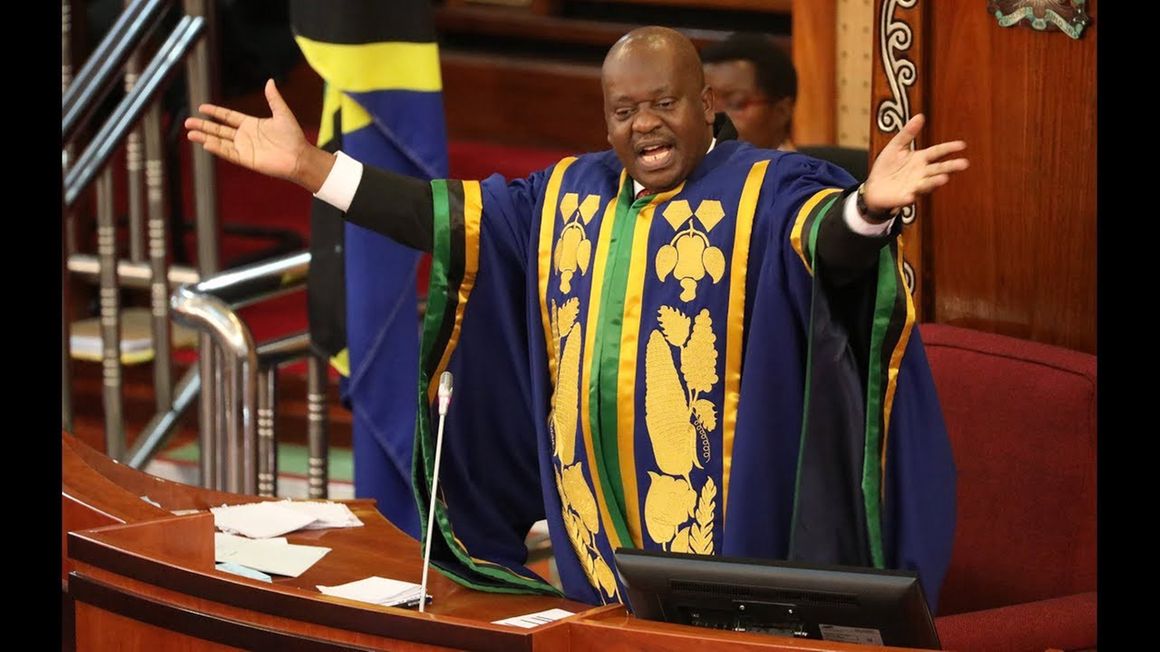Prime
Haruta: Japanese musician spreading peace message and connecting cultures

Haruta performs at a school. PHOTO | COURTESY
What you need to know:
- A multi-lingual song with words in Kiswahili, Japanese and English has connected the two culture-rich nations at a time when Tanzania tourism has peaked as the country’s top foreign exchange earner.
You can hear Haruta singing a catchy hook in the song Daladala that just won three East African awards, the song featuring Lyimo a young and upcoming Tanzanian artist has truly resonated with the young generation.
A multi-lingual song with words in Kiswahili, Japanese and English has connected the two culture-rich nations at a time when Tanzania tourism has peaked as the country’s top foreign exchange earner.
Haruta is a Japanese artist whose music centres on peace. Based in Osaka, the second largest city in Japan, he has been able to travel to several countries taking his peace and love message across nations with his melodic voice and captivating choruses that his fans sing along.
It's no coincidence that Haruta’s music insists on harmony and coexistence, his childhood hero who inspired him the most was Bob Marley, the iconic reggae music legend who transcends the world singing against wars and human oppression, his parents would always play Marley’s music in the house.” my music is just about making music for unity and peace,” he said.
His love for African culture led him to explore more about the continent, he was fascinated with Tanzanian culture, music, the national parks and its safaris and just knew he had to visit the country.
In 2024 when he turned 18 years old, he visited Tanzania, making this his second time in Africa after his initial visit to Ghana a year before.
He was taken aback by the warmth of the people, Tanzanians embraced him in a way he never expected, the people were lively and cheerful, he also discovered to his relief that most people were in what he described as ‘polepole’ time. No rushing and hurrying. “Polepole time is very attractive to me, because in Japan everyone is in a hurry,” he laughed.
His time in Tanzania allowed him to slow down and appreciate life and the beauty of life. He had time to visit the Ngorongoro crater, the world’s largest unbroken, unflooded volcanic caldera, with rich biodiversity within the crater, awash with elephants, rhinos, hippos and many other species.
The area recognised by UNESCO as a world heritage site for its natural and cultural significance has always been on Haruta’s must-see list.
He was shocked by how vast the place is. “I saw many animals but at the same time very beautiful scenery,” he said. Not only animals but also plants were vibrant. Of all the animals he is most fond of, the cheetah, he always thought it was a dangerous animal, but once he saw it, it just looked adorable, like a cat.
Unlike his home country, where you get to see these wild animals in a facility like a zoo, it was refreshing for him to see these animals in an open terrain where they can roam free without constraints. “It's so sad to say, but in Japan, we have them in a facility and not in nature,” he observed.
His time in Tanzania was filled with adventure and artistic connections and networking. It also sparked his creativity and that's how his award-winning song Daladala came about.
When he was waiting for his friend on the road, he was just watching daladalas pass by and the melody came to him in his head, so he started humming, he was overwhelmed and decided to record the melody on his phone.
He told his fellow artist Lyimo, who suggested they sing it in three languages, a nice idea they implemented successfully. Which went on to win three awards, ‘Best new hit by new act‘, ‘best collaboration by new act’ and ‘discovery of the year’. Haruta believes they are making not only music but history, having a Japanese artist on Afrobeat and Bongo flava.
Though he doesn't consider himself a great dancer, he was overjoyed to see people around the world, recreating dance videos to his song Daladala, realising his music is uniting people.
He is banking on music to connect the two nations, the more spotlight the music brings, the better understanding it will create and Japanese media would gravitate towards showcasing Tanzania’s rich culture and tourist attractions that would come to the attention of more Japanese people who would be attracted to visit the country. “It would be great if Japanese people knew about Tanzania through my music,” he added.
His Daladala song also featured some Japanese tourist attraction sites, in Kyoto and Osaka, where he lives and he is sure Tanzanian tourists who would visit those places would love them and the people.
While in Tanzania he also met other Japanese people when he was in Tanzania and they all had good things to say about the country and he hopes the word of mouth will increase Japanese visitors to the country.
He hopes to come back to Tanzania in September. He has currently booked studios in Dar es Salaam, hoping to make more songs with Lyimo and they also plan a media tour to promote their music.
He is armed with a few Kiswahili words that he has learnt over time and he plans to learn some more. “I know, mimi nataka kula chapati,” he laughed. He is contemplating adding words like ‘Kilimanjaro’ to his upcoming songs in a bid to promote Tanzania tourism.
He has fallen in love with Tanzanian cultural attractions, he visited a Maasai village where he bought beautiful ornaments, which he still has today.
He also interned in Tanzania and worked in a hospital where she met many Maasai people, describing them as very kind to foreigners. What he has learned about Tanzania is the spirit of “Hakuna Matata” describing the word as the greatest word or mantra, that allowed him to feel free and know that everything is going to be alright. He is appreciative of the peace Tanzania has.
Because all the wars in the world are not only destroying human lives but also tourism and interaction are destroyed too. Every time he watched news about wars in the world, he felt a deep sense of responsibility to reach out and those affected, contribute to peace.
His biggest passion in life is to contribute to peace, singing songs that appeal to the importance of love and peace.
Not only the music he works as a representative of NGOs in Japan and Africa called ‘yes4peace’ which provides means of peace education for children. How to prevent wars in the future.
Music alone isn't enough to make the world a better place. He wants to be a musician who will use his music to unite people around the world. There are many conflicts in the world even in Africa he can't turn his back on that fact. He believes all people are his family and he wants to do whatever he can for peace.
As Tanzania is going towards a general election, he hopes the country maintains peace and unity. His name Haruta written in Kanji means to the sun, big and bright.
His mum always told him, he was born to be the light to direct people to a positive world. And he hopes he can contribute and lead people to peace.
The most memorable time in Tanzania was when he stayed with Juma, who truly embodied the Tanzanian spirit of friendship and hospitality.
Going back to Japan after his stay in Tanzania was not an easy adjustment, he was already used to the Tanzanian way of life and he had to adapt.
He was so used to the relaxed ‘polepole’ atmosphere that at some point he really wanted to go back to Tanzania. “I miss the country and I miss when I am here, I am hoping to go back to Tanzania soon,” he said.
“It's a miracle that though I am not Tanzanian but Tanzanians love my music and I want to thank them, it's international love, asante sana,” he concluded.




